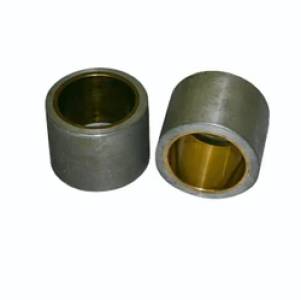Description
Brass die casting offers a superior solution for producing high-volume, intricate metal components with exceptional precision and surface finish. This process delivers parts characterized by strength, durability, and aesthetic appeal, making it ideal for a wide range of industries.
What is Brass Die Casting?
Brass die casting is a metal casting process where molten brass is injected under high pressure into a reusable steel mold (die) cavity. This rapid process allows for the creation of complex shapes with tight tolerances and fine details, unattainable with other casting methods. The resulting components are strong, corrosion-resistant, and possess excellent machinability.
Advantages of Choosing Brass Die Casting:
- High Production Rates: Die casting offers exceptionally fast production speeds, making it cost-effective for high-volume applications.
- Intricate Detailing: The process allows for the creation of parts with complex geometries, undercuts, and fine features.
- Excellent Dimensional Accuracy: Brass die castings exhibit superior dimensional accuracy and consistency, minimizing the need for secondary machining.
- Superior Surface Finish: The process delivers a smooth, consistent surface finish, often requiring minimal or no post-processing.
- High Strength and Durability: Brass offers excellent strength, durability, and wear resistance, leading to long-lasting components.
- Corrosion Resistance: Brass is inherently corrosion-resistant, making it ideal for applications exposed to harsh environments.
- Excellent Machinability: Brass is easily machined, allowing for further customization and finishing if needed.
- Aesthetic Appeal: The inherent golden color and lustrous finish of brass contribute to a visually appealing product.
Applications of Brass Die Casting:
Brass die casting finds applications in numerous industries, including:
- Automotive: Engine components, door handles, decorative trim
- Hardware: Door knobs, locks, hinges, plumbing fixtures
- Electronics: Connectors, heat sinks, housings
- Telecommunications: Connectors, housings, components
- Medical Devices: Implantable devices (specific alloys required), housings
- Industrial Machinery: Components requiring high wear resistance
Material Specifications:
The specific composition of the brass alloy used can be tailored to meet specific application requirements. Common brass alloys include:
- C36000 (Free-Cutting Brass): Excellent machinability, good strength, and corrosion resistance.
- C37700 (Red Brass): High corrosion resistance and ductility.
- Other Alloys: Custom alloys can be formulated to meet specific mechanical and physical properties.
Design Considerations:
Designing parts for brass die casting requires consideration of factors like draft angles, wall thickness, core complexity, and ejection mechanisms. Our experienced engineers can assist with design optimization to ensure successful casting and cost-effectiveness.
